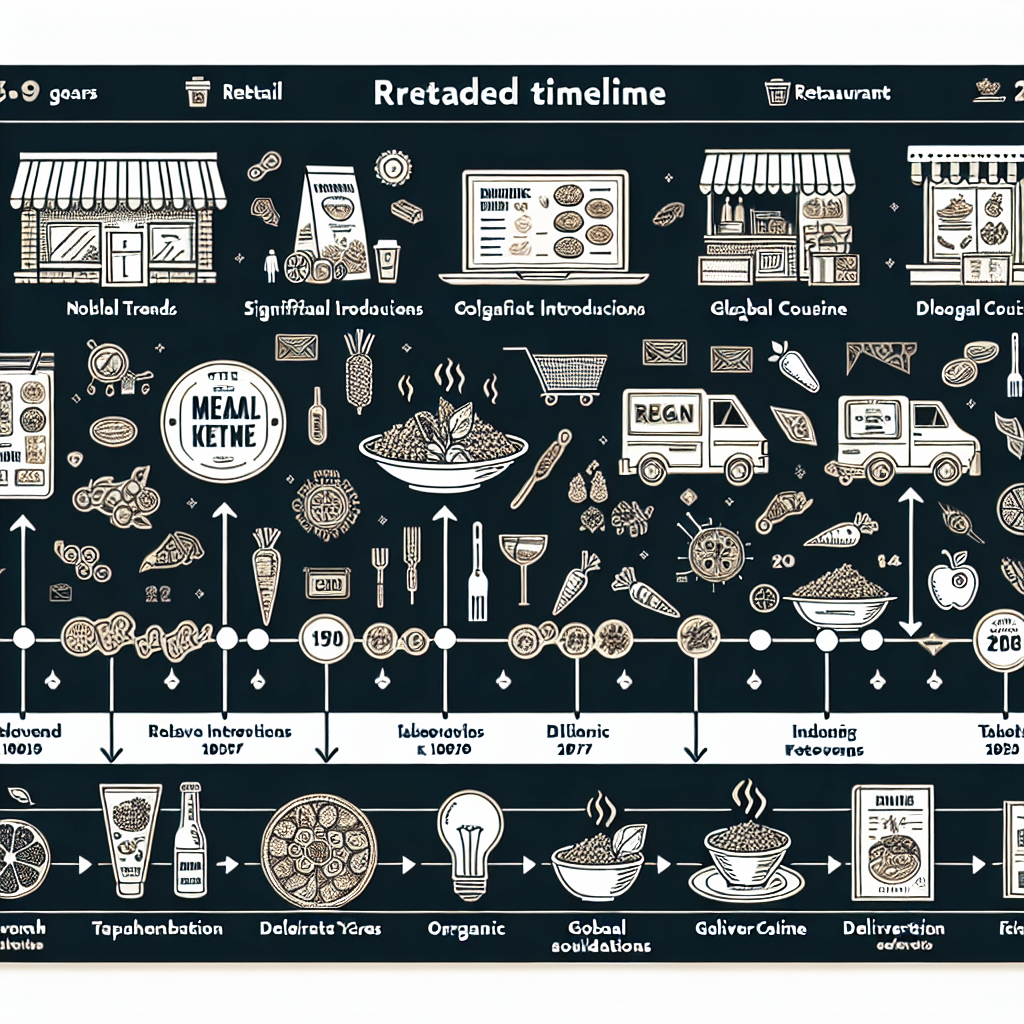Meal Kits Evolution: Retail and Restaurant Market Trends
-
Table of Contents
- Meal Kits Evolution: Retail and Restaurant Market Trends
- The Rise of Meal Kits
- Adaptation by Retailers
- Integration into Restaurant Offerings
- Consumer Behavior and Preferences
- Technological Advancements and Logistics
- Case Studies and Success Stories
- Challenges and Future Outlook
- Conclusion
- ETChem’s Protein Products: Enhancing Meal Kits
Meal Kits Evolution: Retail and Restaurant Market Trends
The food industry has witnessed a significant transformation over the past decade, with meal kits emerging as a revolutionary concept that has reshaped the way consumers approach dining and grocery shopping. The evolution of meal kits has been driven by changing consumer preferences, technological advancements, and the pursuit of convenience in an increasingly fast-paced world. This article delves into the trends and developments within the meal kit sector, exploring its impact on both retail and restaurant markets.
The Rise of Meal Kits
Meal kits started as a niche offering, targeting busy professionals and households seeking a convenient solution to home cooking without the hassle of meal planning and grocery shopping. Companies like Blue Apron and HelloFresh pioneered this concept, delivering pre-portioned ingredients with step-by-step recipes directly to customers’ doors. The appeal was clear: meal kits offered a blend of convenience, variety, and the joy of cooking without the typical inconveniences associated with it.
Adaptation by Retailers
Retailers quickly recognized the potential of meal kits and began to adapt. Supermarkets like Kroger and Walmart introduced their own meal kit lines, while others partnered with existing meal kit companies to offer their products in-store. This strategic move allowed retailers to capitalize on the meal kit trend while leveraging their existing supply chains and customer base.
- Expansion into brick-and-mortar stores
- Partnerships between meal kit services and retailers
- Private label meal kits by grocery chains
Integration into Restaurant Offerings
Restaurants, too, have embraced the meal kit model, particularly in response to the COVID-19 pandemic. With dining-in restrictions, many establishments pivoted to offering meal kits as a way to maintain revenue and keep customers engaged. These kits often feature signature dishes that can be prepared at home, providing a restaurant-quality experience with the comfort of home cooking.
- Restaurant-branded meal kits for home preparation
- Exclusive meal kit offerings through delivery apps
- Culinary experiences with chef-led virtual cooking classes
Consumer Behavior and Preferences
Consumer behavior has played a crucial role in the evolution of meal kits. The demand for healthier, sustainable, and customizable options has led to a diversification of meal kit offerings. Organic, plant-based, and diet-specific kits cater to a wide array of dietary needs and preferences, reflecting a more health-conscious and environmentally aware consumer base.
- Preference for organic and non-GMO ingredients
- Rise of plant-based and specialty diet meal kits
- Focus on sustainability and reduced packaging waste
Technological Advancements and Logistics
Technology has been a driving force behind the meal kit evolution. Innovations in packaging, preservation, and logistics have enabled meal kit companies to extend their reach, improve the freshness of ingredients, and streamline the delivery process. Data analytics and AI have also allowed for personalized meal recommendations, enhancing customer satisfaction and retention.
- Improved packaging for ingredient freshness and sustainability
- Advanced logistics for wider distribution and faster delivery
- Use of data analytics for personalized meal planning
Case Studies and Success Stories
Several case studies highlight the success of meal kits in both retail and restaurant markets. For instance, Blue Apron’s partnership with Costco allowed the meal kit service to tap into a new customer segment, while the launch of Home Chef’s meal kits in Kroger stores led to increased sales and customer engagement. On the restaurant side, companies like Chipotle and Chick-fil-A have successfully introduced meal kits, further blurring the lines between dining out and cooking at home.
Challenges and Future Outlook
Despite the growth, meal kits face challenges such as high customer acquisition costs, retention issues, and intense competition. However, the future looks promising as the market continues to evolve. Meal kits are expected to become more integrated with smart home devices, and subscription models may give way to more flexible, on-demand options. The continued focus on health, convenience, and sustainability will likely drive further innovation in this space.
Conclusion
The evolution of meal kits has had a profound impact on both the retail and restaurant industries, offering consumers new ways to enjoy home-cooked meals with convenience and variety. As the market continues to adapt to changing consumer behaviors and technological advancements, meal kits are poised to remain a significant trend in the food industry. The key takeaways from this evolution include the importance of convenience, the demand for healthier and more sustainable options, and the role of technology in shaping the future of meal kits.
ETChem’s Protein Products: Enhancing Meal Kits
Incorporating high-quality protein into meal kits is essential for meeting consumer demand for nutritious and satisfying meals. ETChem’s protein products, including a variety of collagen types, can enhance the nutritional profile of meal kits, making them an ideal ingredient for companies looking to innovate in this space. With ETChem’s commitment to quality and versatility, meal kit providers can offer products that not only taste great but also contribute to a healthier lifestyle.
About ETChem:
ETChem, a reputable Chinese Collagen factory manufacturer and supplier, is renowned for producing, stocking, exporting, and delivering the highest quality collagens. They include marine collagen, fish collagen, bovine collagen, chicken collagen, type I collagen, type II collagen and type III collagen etc. Their offerings, characterized by a neutral taste, instant solubility attributes, cater to a diverse range of industries. They serve nutraceutical, pharmaceutical, cosmeceutical, veterinary, as well as food and beverage finished product distributors, traders, and manufacturers across Europe, USA, Canada, Australia, Thailand, Japan, Korea, Brazil, and Chile, among others.
ETChem specialization includes exporting and delivering tailor-made collagen powder and finished collagen nutritional supplements. Their extensive product range covers sectors like Food and Beverage, Sports Nutrition, Weight Management, Dietary Supplements, Health and Wellness Products, ensuring comprehensive solutions to meet all your protein needs.
As a trusted company by leading global food and beverage brands and Fortune 500 companies, ETChem reinforces China’s reputation in the global arena. For more information or to sample their products, please contact them and email karen(at)et-chem.com today.





